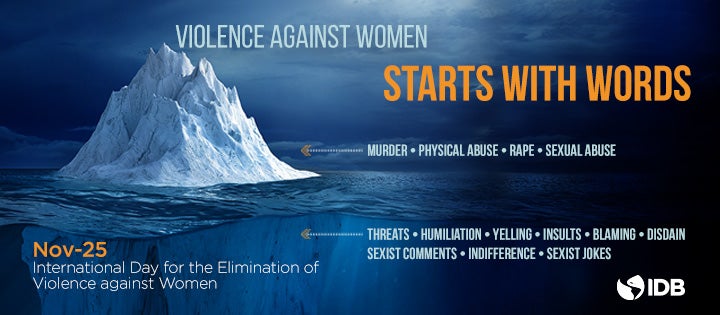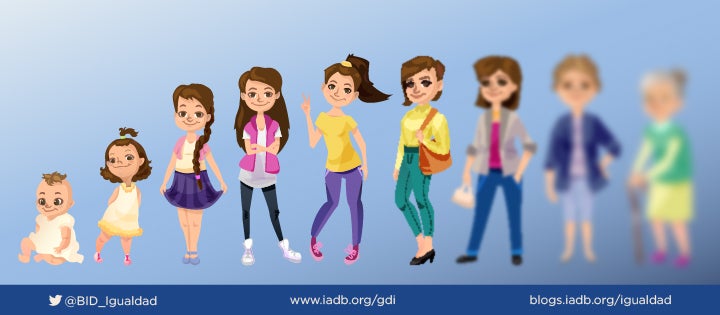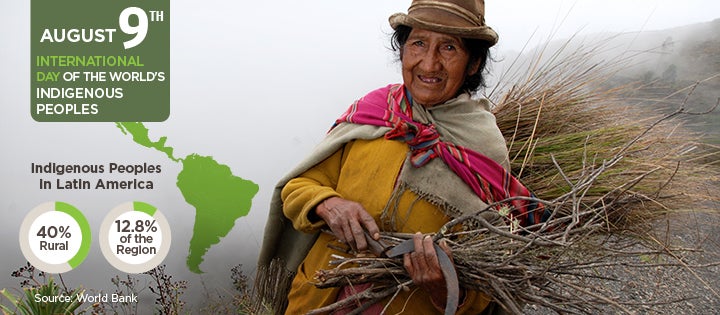March 8th - International Women´s Day. During the 2016 U.S. presidential elections, the world seemed poised to witness the country’s first female president. It did not happen and, for many, Hillary Clinton’s defeat underscored the continuing struggle of women to achieve the highest levels of leadership in government and private sector around the world. At the IDB, gender … [Read more...] about Five ways to promote gender equality at an international organization
How can it be love if it sounds so hateful?
Nov-25. International Day for the Elimination of Violence against Women. “You are useless and stupid; you never do anything right.” “If you leave the house again without my permission, you will really be sorry”. Violence against women starts with words. And while words do not produce the same kinds of visible marks as physical violence, their effects can be just as damaging. … [Read more...] about How can it be love if it sounds so hateful?
5 ways to make sure that the most vulnerable citizens are considered
October 20th - World Statistics Day. In development policy if something cannot be measured it doesn’t count. As a development professional I am frequently asked how many indigenous peoples and African descendants live in the region. A short answer, based on recent estimates, is that they represent up to 40% of the population. However, the issue is more complex, and shows how … [Read more...] about 5 ways to make sure that the most vulnerable citizens are considered
The strange case of women who disappear at age 49
October 1st - International Day of Older Persons. Let’s be honest, growing older is hard. And it is particularly hard for women who are least visible at this stage of life. Nearly 25% of the world’s women are age 50 and older and they account for more than half of the population 60 and older. Yet we know very little about what happens to them after age 49: their sexual … [Read more...] about The strange case of women who disappear at age 49
Use it or Lose it: Tough Decisions for Indigenous Peoples
August 9th- International Day of Indigenous Peoples For the second time just this year I have worked with indigenous peoples who have been forced to move and change their lifestyle due to land pressures. These tough choices are often driven by external actors and concepts of land use that marginalize conservation and instead are based on “use it or lose it” policies My first … [Read more...] about Use it or Lose it: Tough Decisions for Indigenous Peoples





